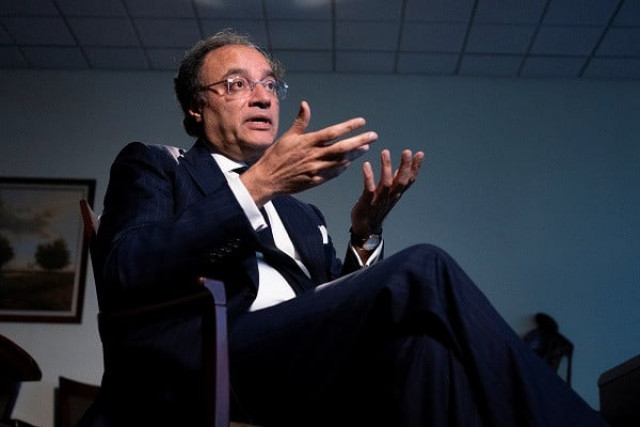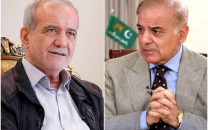Finance minister highlights economic recovery at Harvard conference
Aurangzeb highlighted that inflation had dropped to 0.7%, the lowest in 60 years

Finance Minister Mohammad Aurangzeb on Monday said the country had reached a pivotal moment of economic recovery and transformation, while inviting investors to join Pakistan’s growth journey.
Speaking at the Pakistan Conference 2025 at Harvard University, Aurangzeb outlined key achievements including historic reductions in inflation, a surge in foreign reserves, and a rebound in foreign direct investment.
"After inheriting an economy facing significant challenges—from contracting GDP to depleting reserves—we have stabilised the fundamentals, restored confidence, and reignited growth," he said.
The conference, organised by Harvard students with support from university research centres, is the largest student-led event on Pakistan in the United States.
Aurangzeb highlighted that inflation had dropped to 0.7%, the lowest in 60 years, foreign reserves had doubled, and the currency appreciated by 3%. Pakistan recorded a current account surplus exceeding $1 billion in March 2025, he added.
The minister also cited a 44% rise in foreign direct investment, a 24% growth in IT exports, and record-high remittances projected at $38 billion for 2025. Pakistan achieved a fiscal surplus for the first time in 24 years and secured a sovereign credit rating upgrade from Fitch to B- with a stable outlook.
Aurangzeb stressed that stability was only a stepping stone, outlining the government’s plans for fiscal discipline, structural reforms in energy, taxation, governance, and management of state-owned enterprises.
He pointed to major growth opportunities in Pakistan’s mineral resources, IT sector, green energy projects, and its young entrepreneurial population.
On debt management, Aurangzeb said Pakistan reduced its public debt-to-GDP ratio from 75% to 67.2%, aiming to lower it below 60% in the medium term through fiscal reforms and enhanced domestic financing.
Efforts to privatise loss-making state enterprises could save up to 2% of GDP annually, he added, stressing the importance of transparency and competitiveness in the process.
Aurangzeb also outlined initiatives to deepen financial markets, expand digital banking, and promote green finance, while reaffirming Pakistan’s commitment to climate resilience through partnerships with the IMF and World Bank.
“Pakistan’s future will be shaped by bold, necessary choices,” Aurangzeb concluded. “By investing in our people, modernising our economy, and committing to reform, Pakistan will emerge stronger, greener, and more competitive.”























COMMENTS
Comments are moderated and generally will be posted if they are on-topic and not abusive.
For more information, please see our Comments FAQ